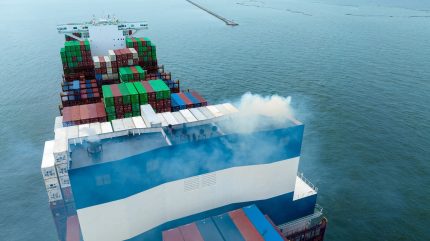New initiative MARBEM aims to steer shipping away from methane

A new international initiative, Maritime Beyond Methane (MARBEM), has commenced operations with the objective of speeding up the global shipping sector’s move away from fuels that contain methane.
The initiative collaborates with policy specialists, financial analysts, economists, and research organisations. It works with partners in 13 countries.
Discover B2B Marketing That Performs
Combine business intelligence and editorial excellence to reach engaged professionals across 36 leading media platforms.
It concentrates on the liquefied natural gas (LNG) supply chain, covering fossil-based, bio-based, and synthetic LNG.
Its activities include clarifying regulations, examining available technologies, and studying trends that affect efforts to reduce emissions in the shipping sector.
MARBEM will supply independent data based on research to help the industry make decisions and set goals for future shipping practices.
The group’s launch comes amid a significant increase in methane emissions from LNG-fuelled vessels, which rose by 180% between 2016 and 2023.
This trend highlights the need for action based on data and evidence, says MARBEM.
Methane, the main component of LNG, has a stronger short-term warming effect than carbon dioxide (CO2).
Current industry trends indicate LNG remains a dominant choice, with LNG-dual fuel ships making up 55% of the present orderbook.
Projections suggest that, if this pattern continues, fossil gas could account for over 10% of maritime energy demand by 2030.
MARBEM has raised concerns that alternative methane-based fuels, including e-methane, e-LNG, biomethane, and bio-LNG, could perpetuate long-term reliance on methane, hindering progress towards international decarbonisation goals.
In 2023, ships powered by liquefied natural gas released an estimated 247,000 tonnes (t) of methane. This amount of methane is linked to about $950m in climate-related damages for that year.
In 2016, the estimated cost was around $250m.
The calculation uses the US Environmental Protection Agency’s Social Cost of Methane, which reflects internationally accepted standards and includes the impact of ground-level ozone formed by methane.
The estimate does not include damage from other greenhouse gases such as CO2 and nitrogen oxides, or effects on local air quality and non-fatal health issues like asthma and hospital visits, said MARBEM.
Over the coming months, MARBEM intends to work closely with the International Maritime Organization and European Union regulators during FuelEU negotiations.
The group will provide technical input to regulatory development processes aimed at keeping shipping aligned with global climate objectives.



